Cisco published a report recently with broad implications for Human Resources leaders that should be required reading for anyone in the profession. Of particular interest is Chapter 2 of their report “The Cisco Connected World Technology Report”, which summarizes key findings on “the challenges companies face in an increasingly mobile and security risk-prone world.” The study looked at employed end users in non-IT jobs, and college students between the ages of 18 – 29 years of age, and among other objectives sought to better understand the attitudes of this population with regard to issues such as “device flexibility” and “social media access” at work. We’ve been teaching companies to advance their human resources and IT policies to leverage the benefits of social tools employees are accustomed to using at home―in the workplace.
This study by an industry giant validates much of what we have been teaching. There are lessons here for Human Resources leaders, as well as for Recruiters and Talent Management or Acquisition teams in these findings. That being said, I’d like to draw your attention to a few of the findings that I see will only grow in significance for HR pros during the coming years―
- Relative to End Users (33%) own experiences, a considerably larger proportion of College Students (64%) plan to ask prospective employers about their policy around social media and the use of personal devices in the workplace.
- About one-third of Students anticipate that flexibility, social media access or freedom to use personal devices at work will be more important than salary when accepting a job offer in the future.
- About 4 in 10 (41%) End Users recall that their company used a flexible device policy to attract new employees at the time they were hired.
- Over 1 in 4 (29%) College Students from the total sample, driven by those in Mexico and China, believe they would not join a company that did not allow their employees to access social media during work hours with company-issued devices.
Can you spot the trends in these findings? In our humble opinion, these trends provide clues as to the expectations of the generation now entering the workforce and replacing retiring baby boomers. For instance, this generation relies heavily on their personal learning network (PLN) and engages with this network via social media tools they have readily accessible at home ―and they expect to be able to tap into these resources at work. Is there room in your organization’s social media policies for this up and coming talent to access their PLN within boundaries permissible and aligned with your goals? If not, are the accommodations that could be made in your policy to balance the risk of social media usage by this population with the potential rewards to your company for allowing these actions? How can you supplement your current employee development plans with stretch development goals that encourage this population to reach out to his or her PLN for help? This is one way you could leverage their PLN to accelerate the employee’s growth without you having to invest additional training dollars or resources.
Human Resources leaders who covet that proverbial seat-at-the-table should ensure their social media policies aren’t limiting the potential benefits of social media use at their organizations to the marketing and sales teams. Much as we teach college students to prepare for an upcoming interview, Human Resources leaders should be coaching their talent acquisition teams to answer the following questions they are sure to face during interviews in the very near future― “What is your policy on employees accessing social media sites?” and “Do your policies allow for me to connect to the company’s network using my personal phone, iPad, laptop, etc.?” or “Can I access me personal email on the company’s issued device?”. Organizations that aren’t prepared to answer these questions might very well see themselves losing the proverbial war for talent or even worse―getting heckled for their poor preparation on these issues in one of today’s public and very social online forums!
Ready to talk about social media?
Alex is a co-founder and Managing Member of Collabor8 Learning, LLC, an instructional design and performance management consultancy. His firm collaborates with organizations to enhance the way they develop and train their people. To learn more about Collabor8 Learning, click here.
Alex can be reached at 786-512-1069, alex@collabor8learning.com or via Twitter@collabor8alex.


